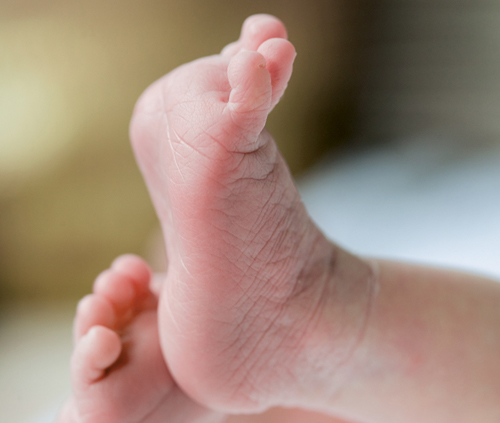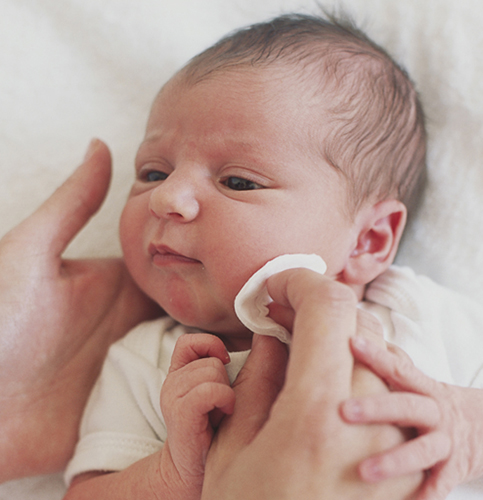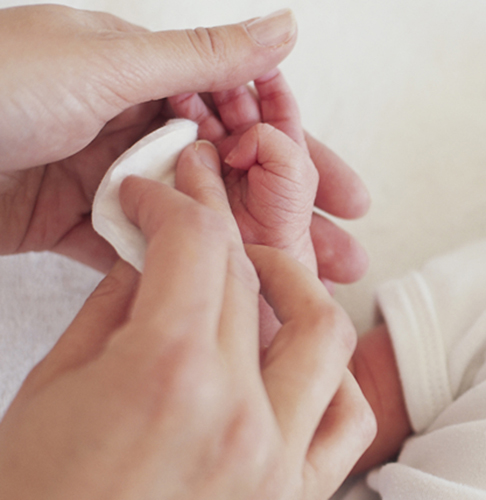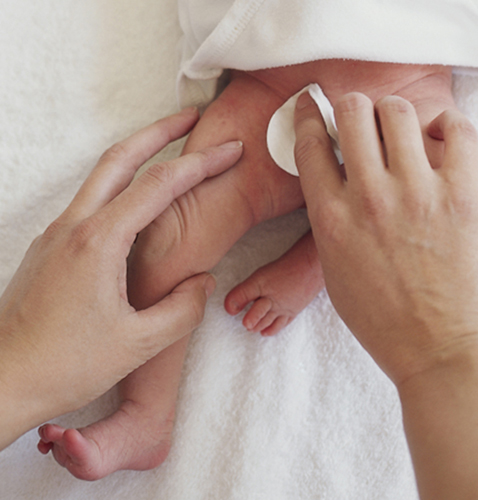Once your breast milk arrives, your baby may start to appear more relaxed and contented and go longer between feedings.
Your baby today
A new baby’s skin is often quite dry in the first few weeks. This
is normal and the skin will eventually correct itself. Although you
don’t need to put moisturizer on a baby’s skin, if you want you could
gently massage in some baby or olive oil.

Your first day at home
with your tiny new baby can be daunting. You are also probably feeling
tired after feeding and changing your baby at night. Keeping your baby’s
crib close to your bed can make life easier at night when you feed or
change her. A crib with sides that can be lowered put next to your bed
lets you feed her and place her back in her crib without actually
getting out of bed. Try to deal with night wakings with a minimum of
fuss. Keep lights low and don’t talk much or stimulate your baby. Only
change your baby’s diaper if it is really necessary and, once the
feeding is done, put her right back down in her crib.
You’ll discover that
babies don’t like being dressed—especially having clothes pulled over
their head. Keep life simple by buying machine-washable, front-fastening
onesies and only change outfits if a diaper leaks. In the first weeks,
there is no need to change her into a daytime outfit. If she is cold,
simply add layers.
Today, you may notice
that swelling in your hands and feet subsides as you pass more urine.
However, you still need to drink plenty of fluids—two to three quarts a
day—to prevent bladder infections, avoid constipation, and help breast
milk production. Today or tomorrow may be the first time you move your
bowels since giving birth. Eat lots of fruit and vegetables and adequate
amounts of fiber to help bowel movements return to normal.
Until now, your
breasts have produced colostrum, the watery premilk rich in nutrients
and antibodies. By the end of the third day your milk will come in and
your baby will start to feel more satisfied. Once your milk is in, your
breasts will likely feel engorged and uncomfortable. As feeding
establishes over the next few days this discomfort should start to
recede.
Fathers will be proud,
to have the new baby at home. Apart from breast-feeding, dads can be
involved in all aspects of care, including calming the baby, changing
diapers, bathing, and dressing.
The doctor will do a checkup
Before you go home to make sure the uterus has contracted; your blood
loss (lochia) to ensure it isn’t too heavy; and any stitches.
Sponge baths
Babies don’t need frequent baths.
Two or three times a week is enough, or their skin can dry out. For the
first week or two, before the umbilical cord stump falls off, give
sponge baths. Wrap your baby in a towel and lie her on a flat surface.
Get ready a baby washcloth, a bowl of warm water, and mild baby soap.
Uncover only the body parts you’re actively washing, then rewrap them in
the towel. Start with the face, with water only, then use soap on the
body and end with the diaper area.
Using a damp washcloth, gently clean your baby’s face, using water only.

To clean her hands, wipe the backs and palms and between the fingers.

Wash the diaper area last, making sure to clean between the creases in the skin.
